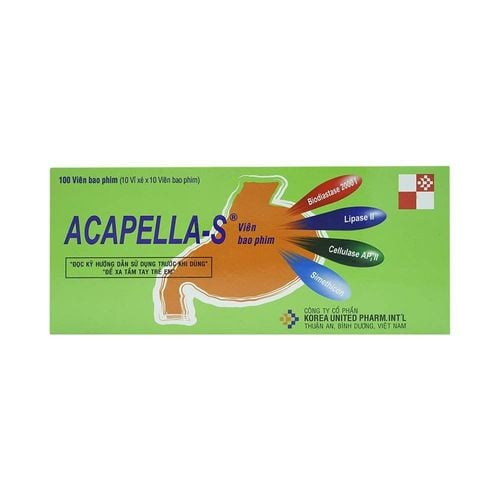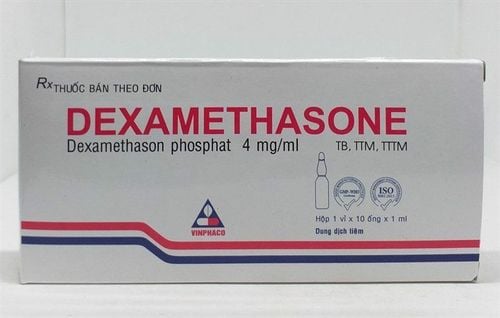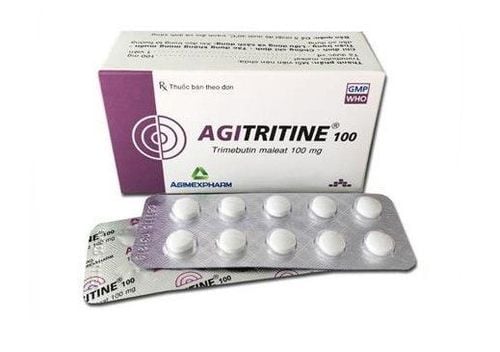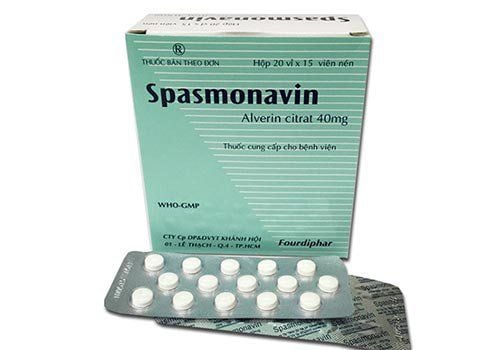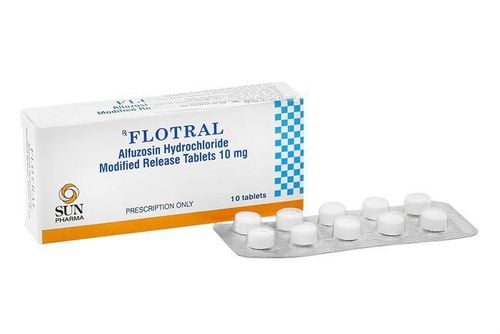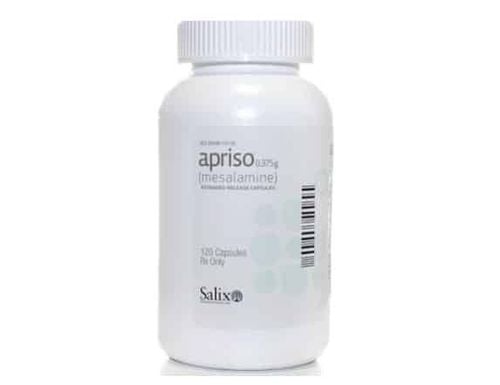This is an automatically translated article.
Colazal is an oral medication containing balsalazide that is indicated for the treatment of colonic disease. Let's find out what Colazal is, what it does and the notes when taking it through the article below.1. What is Colazal?
Colazal contains balsalazide, which is indicated for the treatment of mild to moderate active ulcerative colitis in adults and children 5 years of age and older.In addition, Colazal may be used for a number of other purposes not listed in this medication guide as directed by your doctor.
2. How to take Colazal
Read the instructions for use of the drug Colazal carefully before using. Drink plenty of fluids while taking Colazal, with or without food, as directed by your doctor. If the tablet cannot be swallowed whole, the capsule can be opened and sprinkled with a spoonful of apple sauce, then swallowed immediately. The medicine from the capsule may stain teeth or make the tongue yellow/orange when mixed with food. Be careful not to pre-mix the mixture for later use.Dosage depends on age, patient condition and response to treatment, usually 3 times per day. Take the medicine regularly for the best results. Colazal is usually only used for a short time (8 - 12 weeks), pay attention to follow the instructions and instructions of the doctor. Tell your doctor if your condition does not improve or gets worse.
3. Overdose, missed dose
3.1. Overdose
Overdosing on Colazal affects health and can be dangerous. Patients who overdose on Colazal with serious symptoms such as fainting, shortness of breath, ... need to go to medical facilities immediately for examination and timely treatment.3.2. Forgot to take medicine
If you miss a dose of Colazal, take that dose as soon as you remember. However, if it is almost time for your next dose, skip the missed dose, do not take two doses at the same time.4. Colazal side effects
Common side effects when using Colazal include:Headache. Nausea, vomiting, abdominal pain, diarrhea. Athritis. Fever. Anorexia. Difficulty sleeping. Nasal congestion, sneezing, sore throat. In addition to the common side effects mentioned above, Colazal can cause serious side effects. Tell your doctor immediately when the following symptoms appear:
Painful urination, frequent urination. Colitis symptoms get worse: Fever, more abdominal pain, cramps, loose stools with blood in them. Kidney-related symptoms: No or less urination, edema, rapid weight gain,... Liver-related symptoms: Jaundice/eyes, abdominal pain, loss of appetite, dark urine, defecation brown stools,... Anemia: Pale skin, pale skin, fatigue, dizziness, shortness of breath, cold hands and feet. Signs of an allergic reaction: Hives, difficulty breathing, swelling of the face, lips, tongue or throat,... (rare). This is not a complete list of possible side effects in patients taking Colazal. If you experience unusual or worsening symptoms, tell your doctor right away.
5. Drug interactions
A drug interaction is a condition in which drugs, when taken together, can change the way a drug works or increase the risk of serious side effects.Some drugs that can interact with Colazal are: dichlorphenamide, mesalamine,... Some other drugs can also affect Colazal when combined, including prescription drugs, over-the-counter drugs, vitamins. or herbal products. Therefore, before taking Colazal, it is necessary to tell your doctor about any drugs / products you are using or have recently stopped using.
In addition, Colazal may affect the results of certain tests such as the normetanephrine urine test.
6. Caution
Do not use Colazal for those who have a history of allergy to Colazal, balsalazide or to other aminosalicylates (mesalamine, olsalazine), salicylates (such as aspirin, salsalate), sulfasalazine,... Other allergic agents are also needed. reported to the doctor. Before taking Colazal, you should tell your doctor your medical history, especially about gastrointestinal conditions (such as pyloric stenosis), liver disease, kidney disease, such as atopic dermatitis, eczema,... This drug May make the skin more sensitive to the sun, especially in people with skin problems such as atopic dermatitis, eczema, so it is necessary to limit time in the sun while taking this medicine. . Wear protective clothing and use sunscreen when outdoors. Tell your doctor right away if you experience sunburn, blistering, or redness on your skin. Before surgery, it is necessary to inform the doctor about all the medicines you are taking, including Colazal. Colazal contains sodium, consult your doctor if you have medical conditions such as heart failure, ... or are on a salt diet. Colazal is similar to aspirin, and children and adolescents under 18 years of age should not take aspirin if they have chickenpox, the flu, an undiagnosed illness, or have recently had a vaccine. In these cases, taking aspirin increases the risk of Reye's syndrome, a rare serious syndrome. During pregnancy or planning to become pregnant, use Colazal only when clearly needed after discussing the risks and benefits with your doctor. Active ulcerative colitis in pregnant women can cause premature birth or low birth weight babies. The benefits of treating ulcerative colitis may be greater, so careful consideration should be given to the use of Colazal in pregnant women. The drug can pass into breast milk, so consult your doctor before breast-feeding. Using Colazal in a nursing woman can cause diarrhea in the baby, so tell your doctor in this situation. Colazal should not be given to children under 5 years of age.
7. Preservation
Store Colazal at room temperature, away from light and moisture, do not leave the medicine in the bathroom. Do not keep the medicine when it has expired or is no longer needed. Do not flush Colazal down the toilet or down the drain. Keep the medicine out of the reach of children and away from pets. Use Colazal only as directed by your doctor and never share it with others.




